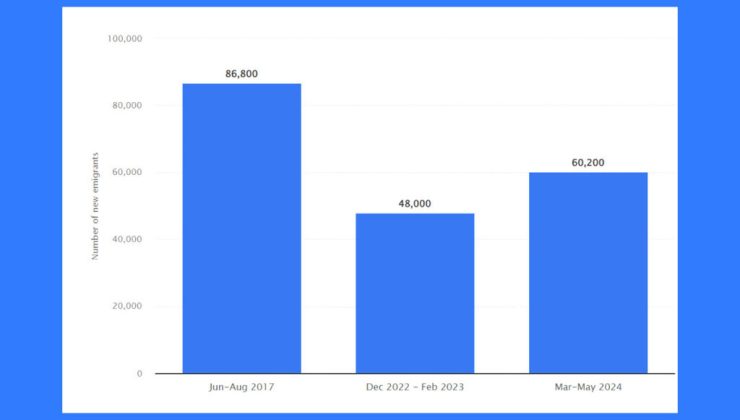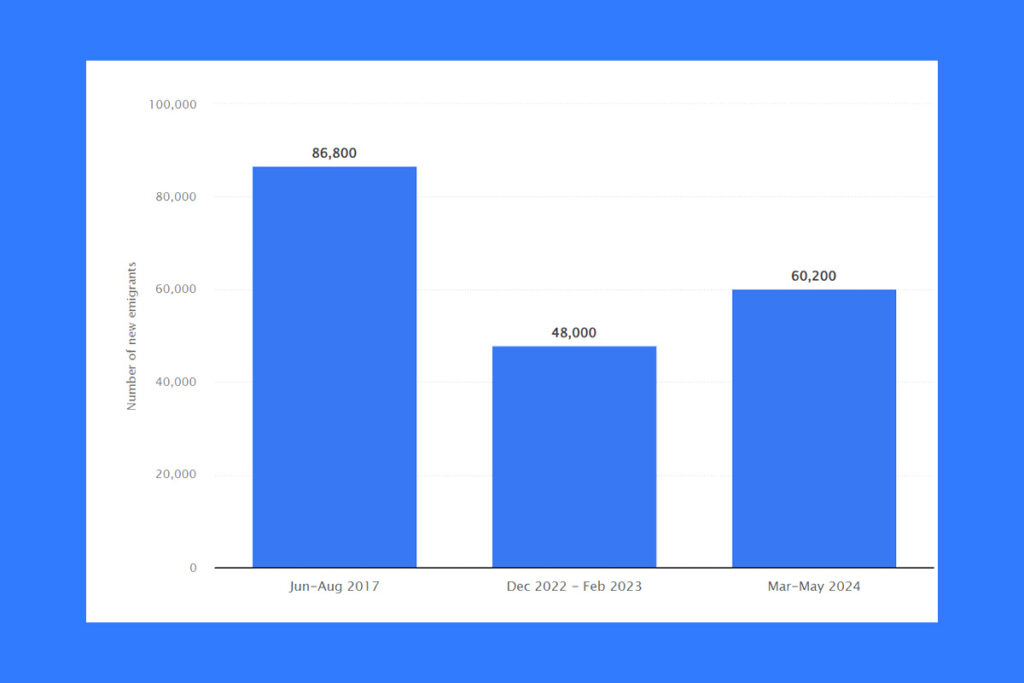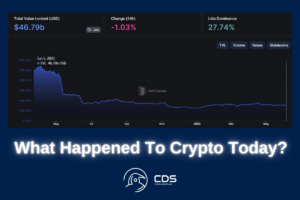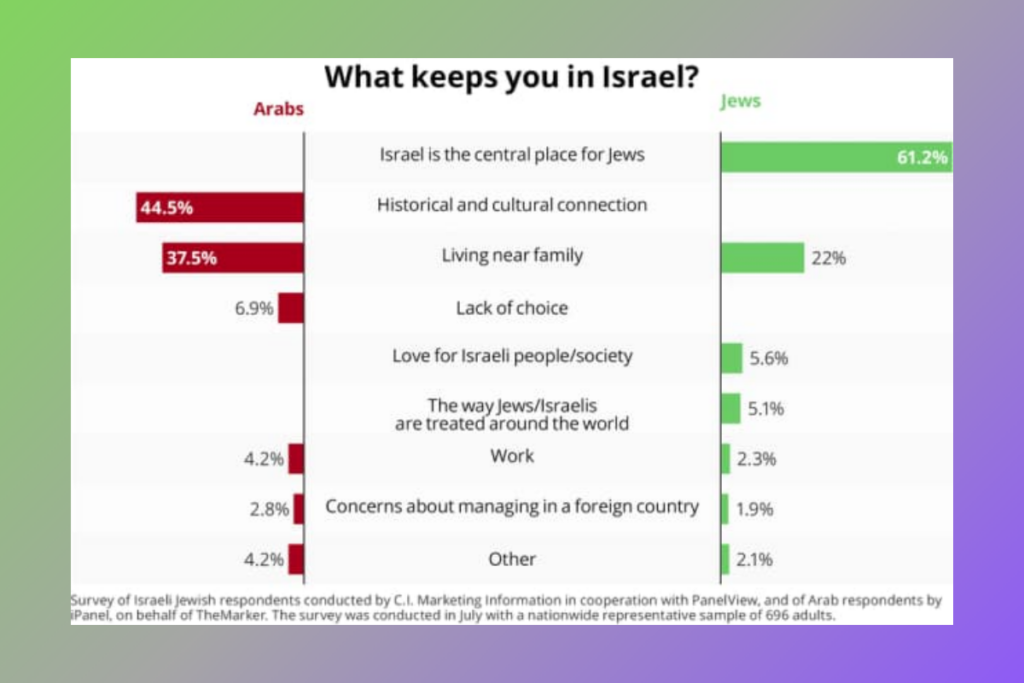


One year after the Israel-Hamas conflict began, the Israel blockchain sector is dealing with the region’s growing geopolitical instability, which makes some skilled individuals reluctant to take positions there. Israeli business executives who spoke with Cointelegraph expressed optimism about the nation’s blockchain industry’s future in spite of this.
According to a Statista report from August, 60,000 Israelis have left the country in the 24 months before May. According to the business statistics platform, emigration increased by 25% since February 2023. As emigration exceeds immigration, the numbers have sparked concerns about a potential brain drain in the state.
There is a huge wave of departures from the country.
Nobel laureate professor of biology Aaron Ciechanover
The challenges of war do not exempt the blockchain industry. Hiring has become more difficult in the current climate, according to Yaniv Baruch, chief operating officer of the GameFi initiative Playnance, based in Tel Aviv.

There has been a noticeable decline in job mobility within the tech sector. The uncertainty and security concerns have made some professionals hesitant to consider new job opportunities or relocate,
Baruch
Individual companies and business owners have no authority over the ongoing dispute, but that doesn’t imply they have been inactive. The increased focus on remote workers filling the gap is a logical move in the blockchain business since many functions are already distant.
We’ve widened our recruitment reach, going beyond just local hires and embracing remote work. This shift to remote work lets us access a global pool of talented professionals who can contribute from anywhere in the world. We’ve also made sure to showcase what makes Playnance special — working on the latest blockchain tech and being part of a dynamic, forward-thinking team. It helps us attract passionate people who are excited about making a real impact in fintech and blockchain.
Baruch

2023 saw a statistical increase in emigration from Israel, although, as with many statistics, it can be challenging to draw conclusions from the raw data. A spike in emigration immediately followed the start of the Israel-Hamas conflict, although some analysts have also attributed the increase to judicial reforms at the beginning of the year that reduced the legislative authority of Jewish courts. In conclusion, Baruch is optimistic about the future of the blockchain sector in Israel.
I’m highly optimistic about the future of blockchain in Israel. Despite current challenges, our country remains a global development leader. Israel has one of the highest concentrations of startups per capita, with over 6,000 startups operating across various tech sectors. Such a vibrant ecosystem feeds the culture of entrepreneurship and creativity ideal for the growth of blockchain technology.
Baruch
For more up-to-date crypto news, you can follow Crypto Data Space.
 1
Memecoins Surge as “Peanut the Squirrel” Becomes a Viral Icon in Solana’s DeFi Market
1
Memecoins Surge as “Peanut the Squirrel” Becomes a Viral Icon in Solana’s DeFi Market
 2
Strong September Jobs Report Alters Fed Rate Cut Expectations
2
Strong September Jobs Report Alters Fed Rate Cut Expectations
 3
The Future of Financial Reporting: Crypto News and Emerging Trends in Digital Assets
3
The Future of Financial Reporting: Crypto News and Emerging Trends in Digital Assets
 4
Crypto Landscape: Job Cuts Amid Financial Gains
4
Crypto Landscape: Job Cuts Amid Financial Gains
 5
Ethereum Researcher Justin Drake Steps Down from Eigen Foundation, Signals Full Commitment to Layer-1 Development
5
Ethereum Researcher Justin Drake Steps Down from Eigen Foundation, Signals Full Commitment to Layer-1 Development